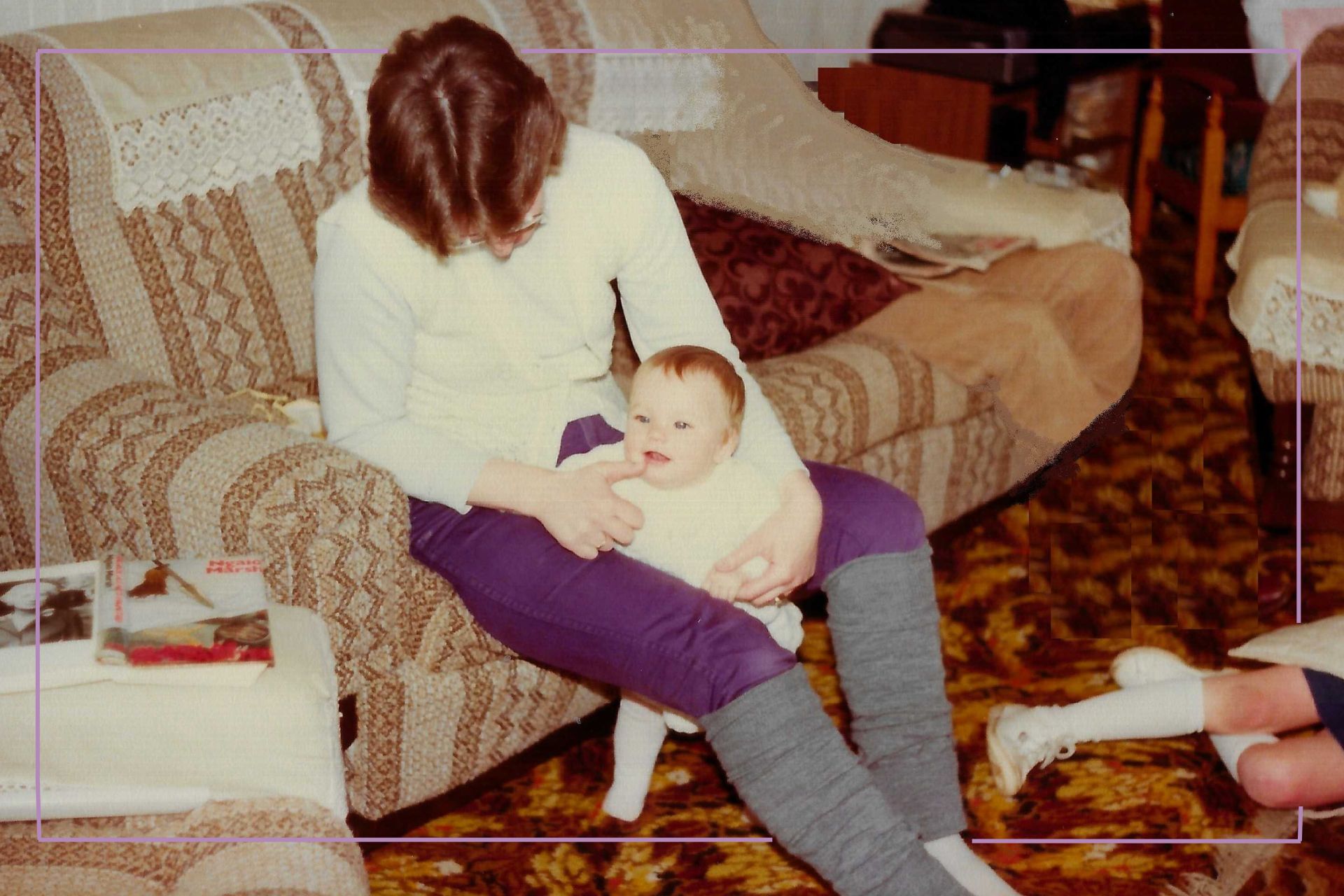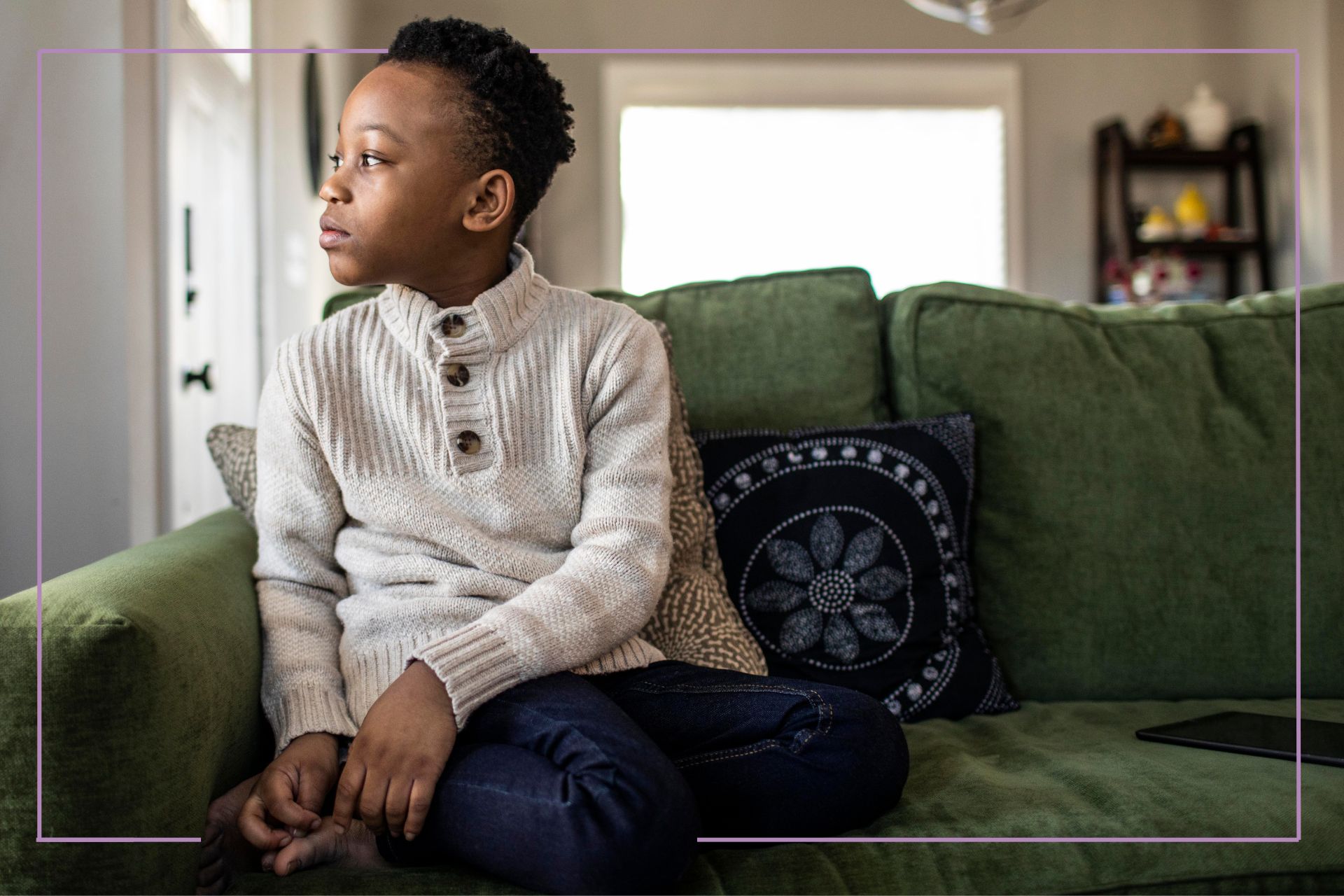The 8 ways I parent differently from my mum, and here's why (I asked a parent therapist)
Family editor Stephanie Lowe discusses why parenting is so much harder now than it was for her parents...

Parenting advice, hot topics, best buys and family finance tips delivered straight to your inbox.
You are now subscribed
Your newsletter sign-up was successful
Parenting in 2024 is a tightrope walk of insane childcare costs, big emotions, and how much screen time is too much. I don’t remember it being this hard for my parents in the 80s. There was no calm, co-regulation or validation of big feelings. I was to do as I was told and smacked legs were free for all.
Boomer parents had it easier, right? They had it all figured out (or so we thought). Fast forward to 2024, and parenting looks as different as a Commodore 64 does from the Google Pixel 8 Pro. Hello parenting styles - we're looking at you gentle parenting.
In the '80s, when you had a parenting question, you'd reach for a dog-eared copy of Dr. Spock's baby book or call your mum for advice. Today? You've got a village and experts in your pocket, thanks to social media and the internet. It's like having a 24/7 parenting hotline. Which is just as well because the world has shifted its expectations. We're no longer just raising kids; we're raising future adults with a PhD in emotional regulation and organic snack preferences. It's exhausting, exhilarating, and often hilarious. But isn't that what parenting has always been?
I spoke to GoodtoKnow expert psychotherapist and mum-of-three, Anna Mathur about exactly why this might be - as consider how I parent differently to my mum.
How times have changed
Remember when sharing baby photos meant gathering the family around a photo album? Now, little first steps are live-streamed. And, don't get me started on the pressure to create Pinterest-worthy bento box lunches. In the '80s, if your kid's sandwich wasn't cut into the shape of a dinosaur, no one batted an eye.
Sure, now we can ask Google the most random parenting questions in the middle of the night - but, we're also bombarded with conflicting advice faster than you can say sleep training. Parent therapist, and author, Anna Mathur agrees; "It’s information overload sometimes, isn’t it?"
And here's the kicker, all this information at our fingertips can be both a blessing and a curse. This readily available info has led to the rise of the 'cycle breakers’. These are the parents who looked at how they were raised and said, yeah no thanks. We're talking about a generation that's swapped 'because I said so' for 'let's talk about your feelings'. And I'm one of them, here's how my parenting looks compared to my mum's...
Parenting advice, hot topics, best buys and family finance tips delivered straight to your inbox.
8 ways I parent differently to my mum
1. Timeout Corner VS Calm Down Corner
It's true, many parents these days have traded in the shame-inducing timeout or 'naughty step'. They now understand that kids aren't giving adults a hard time - they are having a hard time and they don't yet have the brain development to deal with it.
Parents in 2024 create cosy spaces where kids can regulate their emotions instead. It's less "Go to your room!" and more "Let's breathe together".
2. Finish your plate VS Listen to your body
This one is a biggy for me, meal times were a battle. Left to sit at the table for hours because I refused to eat liver and onions, and being told to 'get it eaten' when I said I was full. All it did was create a grown woman who can't listen to her own body or honour her own hunger cues. Force-feeding vegetables is out, intuitive eating is in. Who knew that not turning dinner into a battlefield could actually work?
3. Boys don't cry VS It's okay to feel
Teaching emotional intelligence is the new cool. We're raising kids who can name their feelings faster than they can name Pokémon - and it's only going to benefit them in the long run. Emotionally intelligent people have self-awareness, empathy, and excellent communication skills - traits that can significantly impact a child's mental health and overall well-being.

4. Do as I say VS Let me explain why
We're big on reasoning now. Sometimes it feels like you're negotiating with a tiny lawyer - but hey, critical thinking skills don't just develop out of thin air. They're practiced again and again.
5. Gender-specific toys VS Play how you like
Pink is for everyone, and so are toy trucks. We're breaking down those gender barriers faster than you can say toxic masculinity. And, great news, gender-neutral toys are a very real thing. To be fair, growing up one of four with two brothers I was always a fan of HeMan as well as Barbie.
6. TV as a babysitter VS Let's co-view
Screen time isn't the enemy anymore. It can be an opportunity for bonding and media literacy - done the 'right' way, of course. Back in the 80s cartoons were on a finite amount of time. 6am - 11am on a Saturday and Sunday if I remember rightly. So the hard work of 'boundary setting' was done for parents by the TV scheduling team. These days I can have Bluey on loop all day thanks fo Netflix, but the battle to get it off is very real.
7. Go play outside VS Scheduled playdates
Spontaneous neighbourhood games outside have been replaced by orchestrated socialisation opportunities aka: playdates. I remember going out from 8am until the street lights came on and only popping back for lunch. I literally cannot even entertain the idea wfor my son ithout an intrusive thought popping up.
8. Corporal punishment VS Natural consequences
Smacking is out, natural consequences and helping your kids learn from their mistakes are in. We're teaching kids to make good choices, not just fear bad ones.
What the parent therapist says
"I think parenting feels so different in 2024 because of one main thing; "Guilt." Anna Mathur tells me. "We recognise that we can’t be mentally and physically present with our kids as perhaps our own parents were - in the sense that we are juggling to much more there are circumstantial things we are working more than the mothers of the 1980s."
She adds that even the mums who did work full time felt more available. "My mum worked but it felt like when she was there in body she was fully present, pottering around, she felt very available should we have needed her attention or affection." Anna explains that it's just not the same for parents of today, everything has become 'too much'.
"Our attention these days is a commodity and it is being called away from our children because there is a price attached to it."
Anna Mathur
She tells me; "I feel like not only are we circumstantially less present because of the work and childcare juggle, we’re also mentally less present because of the increased load that that brings. Plus, our phones, let's be honest this digital world is just calling for our attention the whole time. It's because our attention these days is a commodity, and it's being called away from our children, because there is a price attached to it."
This is why parents are feeling burnt out in 2024, and looking back to yesteryear of parenting with rose-tinted glasses; "I think the drive to always be doing something with our kids and do all these things and make all these memories and have all this fun, is a response to thar underlying guilt that we feel at that lack of physical and mental presence."
Main takeaway
So, here we are in 2024, armed with smart baby monitors, organic teething toys, and enough parenting podcasts to last until our kids have kids of their own. We've swapped wooden spoons for mindfulness apps and 'Wait till your father gets home' threat for family meetings. It's a brave new world of parenting, and sometimes it feels like we need a user manual just to keep up. But underneath all the gadgets and gizmos, the core of parenting hasn't really changed. We're still just trying to raise happy, healthy humans who won't need too much therapy later in life. We still lose sleep over fevers, beam with pride at school performances, and secretly eat their Halloween sweets haul while they sleep.
Whether you're a 1980s parent rocking acid-wash jeans or a 2024 parent posting #blessed on Instagram, you're doing your best with the tools and knowledge you have. And let's be honest – both generations have their fair share of 'What was I thinking?' moments. (Mullets and gender reveal parties, we're looking at you.)
So here's to all the parents out there, we may parent differently than our own parents did, but we're all united in the universal experience of stepping on Legos in the middle of the night and pretending it doesn't hurt. No matter what decade you're parenting in, the most important tools are love, patience, and a good sense of humour. Oh, and maybe some noise-cancelling headphones. Those are pretty great too.
Parenting is the hardest job in the world, it kicks off with post natal life and then once you've made it through maternity leave and stared down the barrel of post-natal depression you then have explaining the mental load to contend with.
Stephanie has been a journalist since 2008, she is a true dynamo in the world of women's lifestyle and family content. From child development and psychology to delicious recipes, interior inspiration, and fun-packed kids' activities, she covers it all with flair. Whether it's the emotional journey of matrescence, the mental juggling act of being the default parent, or breaking the cycle of parenting patterns, Stephanie knows it inside out backed by her studies in child psychology. Stephanie lives in Kent with her husband and son, Ted. Just keeping on top of school emails/fundraisers/non-uniform days/packed lunches is her second full-time job.